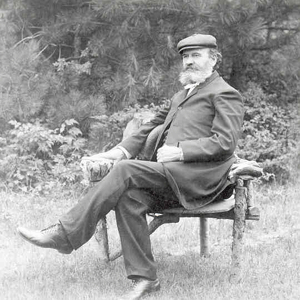A Quote by C. S. Lewis
The central Christian belief is that Christ's death has somehow put us right with God and given us a fresh start. Theories as to how it did this are another matter. A good many different theories have been held as to how it works; what all Christians are agreed on is that it does work.
Related Quotes
Grace is not against good works! It simply does not bless on the basis of good works. We receive blessing from God based solely on the merits of His Son--blessings freely given to us in Christ and nowhere else. The completeness that is in Christ mean deliverance from trying to 'be good' and 'do right' in order to be accepted by God.
The Christian is in a different position from other people who are trying to be good. They hope, by being good, to please God if there is one; or — if they think there is not — at least they hope to deserve approval from good men. But the Christian thinks any good he does comes from the Christ-life inside him. He does not think God will love us because we are good, but that God will make us good because He loves us; just as the roof of a greenhouse does not attract the sun because it is bright, but becomes bright because the sun shines on it.
Perhaps generations of students of human evolution, including myself, have been flailing about in the dark; that our data base is too sparse, too slippery, for it to be able to mold our theories. Rather the theories are more statements about us and ideology than about the past. Paleontology reveals more about how humans view themselves than it does about how humans came about, but that is heresy.
In the modern Christian attempt to take a stand as Christ did, and maybe for others, win the approval of the world, the Christian will often think that it consists of targeting and demoralizing fellow Christians and only fellow Christians. It is one thing to stand against religious hypocrisy when one sees it, but it is another to go on snorting at anything or anyone who might seem 'too Christian' to us. The irony is that by doing this we are further advocating hypocrisy and 'half-hearted Christians'.
Many of the greatest works of philosophy seem to me to be valuable not because of their arguments, but because they offer us perspectives that open up new possibilities. They show us how we might start in different places, and not buy into the assumptions tacitly made on the first pages of the philosophical works that have influenced us.
Feeble are we? Yes, without God we are nothing. But what, by faith, every man may be, God requires him to be. This is the only Christian idea of duty. Measure obligation by inherent ability! No, my brethren, Christian obligation has a very different measure. It is measured by the power that God will give us, measured by the gifts and possible increments of faith. And what a reckoning will it be for many of us, when Christ summons us to answer before Him under the law, not for what we are, but for what we might have been.
Well, here’s a scientific question: Has anybody ever seen hard evidence? What we get is theories from our earlier prophets. Now, people who think that God invented us think that the Earth can’t be more than 6,000 years old. So I guess it’s a question of belief. My belief system doesn’t support a creator as such, as we can call God, who created us in His/Her/Its image.
Every life is inexplicable, I kept telling myself. No matter how many facts are told, no matter how many details are given, the essential thing resists telling. To say that so and so was born here and went there, that he did this and did that, that he married this woman and had these children, that he lived, that he died, that he left behind these books or this battle or that bridge – none of that tells us very much.
Everybody needs to realize that it doesn't matter how old you are or how young you are, you still can be a Christian and live for God. It's not easy but that's why we have God's word and He forgives us when we do something we shouldn't be doing. You know, God sent His son to die for us and He paid that sacrifice so you can go to Heaven.
God wants us to speak to men so that they will feel it, so that they will never forget it. God means every Christian to be effective, to make a difference in the actual records and results of Christian work. God put each of us here to be a power. There is not one of us but is an essential wheel of the machinery and can accomplish all that God calls us to.
A true soldier does not argue as he marches, how success is going to be ultimately achieved. But he is confident that if he only plays his humble part well, somehow or other the battle will be won. In is that spirit that every one of us should act. It is not given to us to know the future. But it is given to everyone of us to know how to do our own part well.
For, after all, if it is from Christ that we are to learn how God relates himself to sin, suffering, evil, and death, it would seem that he provides us little evidence of anything other than a regal, relentless, and miraculous enmity; sin he forgives, suffering he heals, evil he casts out, and death he conquers. And absolutely nowhere does Christ act as if any of these things are part of the eternal work or purposes of God.



































